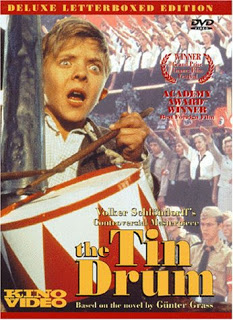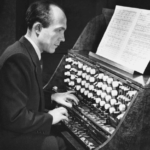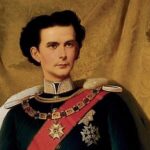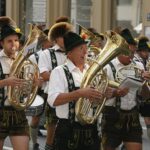April 14, 1759
Georg Friedrich Händel dies in London (born in Halle, Germany). Among his many great works, the composer is most known for his Messiah (1741), his Water Music (1717) and his Music for the Royal Fireworks (1749). Händel moved to Hamburg in 1703 and was active as a musical performer. In 1705 he presented his first opera Almira. By 1710 he was at the court of the elector of Hannover, George. George would become the King of England in 1714 and call Händel to his court there. In England Händel changed his name to Handel and became a British subject.
April 14, 1859
Death of Ignaz Bösendorfer in Vienna, Austria. Bösendorfer was a piano maker. He founded the Bösendorfer piano company which still produces some of the worlds finest pianos.
April 14, 1868
Birth of Peter Behrens in Hamburg, Germany. Behrens was an architect. He was the director of the arts and crafts school in Düsseldorf when in 1907 he was appointed AEG’s artistic adviser for all AEG products. He attracted such luminaries as Gropius, Mies van der Rohe and Le Corbusier to work with him on various projects.
April 14, 1882
Birth of Moritz Schlick in Berlin, Germany. Schlick was a philosopher of the Positivist school. He studied at the Universities of Heidelberg, Switzerland and Berlin. His doctorate from Berlin was in physics. He became a professor of philosophy at the University of Vienna. In his work he attempted to bring the methods of the natural sciences to bear on philosophy. Among his books are,Allgemeine Erkenntnislehre (1918) Raum und Zeit in der gegenwärtigen Physik (1919), Fragen der Ethik (1930), and Grundzüge der Naturphilosophie (1948).
April 14, 1935
Death of Emmy Noether in Bryn Mawr, PA (born in Erlangen, Germany). Noether was a mathematician of extraordinary abilities. She earned her doctorate from the university of Erlangen and subsequently became a professor of mathematics at the University of Göttingen. In 1933 she was dismissed from the University by the Nazis and immigrated to the United States where she served as a professor at Bryn Mawr College. Noether specialized in abstract algebra.
April 14, 1945
On this date the philosopher, Karl Jaspers, was to be arrested by the Gestapo. (The American army, however, occupied Heidelberg on March 30 and the Gestapo plans were never carried out.)
April 14, 1960
In East Germany (DDR) it is decided to force the collectivization of all agriculture.
April 14, 1980
For the first time a German film wins an Oscar at the American Academy Awards. Volker Schlöndorffs The Tin Drum (Die Blechtrommel) wins the award as the year’s best foreign film. The original novel was written by Günther Grass.
April 14, 1999
On the afternoon of April 14, 1999, the official move of the German federal government began as the first trucks with documents from the ministries of the interior and economics left Bonn on the way to the new seat of government in Berlin.
Back to Today in German History Calendar









